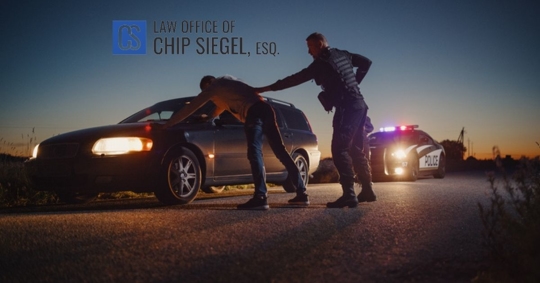Understanding the Legal Dynamics
When facing charges related to DUI or drug possession, it’s easy to feel overwhelmed. These cases can affect your freedom, your reputation, and your future. But it’s important to remember—you have rights, and you deserve a strong defense.
DUI vs. Drug Possession: Key Differences
DUI charges come up when you're caught driving while impaired by alcohol or drugs. This usually involves breathalyzer tests, field sobriety exams, or blood tests. Drug possession charges, on the other hand, focus on whether you had illegal substances on your person or property.
The penalties for each charge can look very different. DUI convictions often mean fines, license suspensions, or jail time, especially if it’s not your first offense. Drug possession punishments depend on the type and amount of drugs involved and can lead to anything from probation to prison. Both can seriously impact your life beyond the courtroom, including your job and social standing.
Transition from DUI Stop to Drug Possession Charge
Sometimes a simple traffic stop for DUI can turn into a drug possession case. If officers notice signs like drug paraphernalia, smell drugs, or see behavior they interpret as drug use, they might search your vehicle. But any search must be legal—officers need probable cause or your consent.
If evidence is found without proper cause, it might be thrown out. Understanding your rights during these stops can help prevent charges from escalating unnecessarily.
Legal Procedures and Rights
Rights During a Traffic Stop
During any stop, you have the right to remain silent and to refuse a search unless the officer has a warrant or probable cause. Law enforcement must follow rules, including informing you of your rights when they arrest you. If they don’t, it could weaken their case.
Knowing these protections is key. You don’t have to say anything that might harm your defense, and you can push back against unlawful searches.
Search and Seizure Laws
The Fourth Amendment protects you from unreasonable searches. Officers must have a reasonable reason or your permission to search your car. If they don’t, the evidence they find could be thrown out.
Strong legal defense often starts by challenging whether the search was legal. If you believe your rights were violated, a skilled attorney can fight to have that evidence excluded.
Aftermath of a Drug Possession Charge
Immediate Consequences
An arrest for drug possession means you might be booked, held, or given bail. Your ability to prepare your defense depends heavily on whether you’re free before trial. Bail is influenced by your criminal history and ties to the community.
A drug charge can also affect your driver’s license, potentially suspending it, and impact how others see you, both personally and professionally.
Long-Term Consequences
A drug conviction can close doors. Employers, landlords, and even foreign governments often deny opportunities to those with records. But in some cases, the law allows you to seal or expunge records, improving your chances of moving forward.
Navigating expungement is complex. Legal guidance can clarify your options and help you reclaim your future.
Navigating the Legal Process
Engaging with Legal Representation
Having a defense lawyer familiar with DUI and drug cases is essential. They understand the court procedures, can identify weaknesses in the prosecution’s case, and build strong defenses tailored to your situation.
When choosing representation, look for someone with a track record handling cases like yours. Communication and trust are vital. Local knowledge matters too, as state laws and court practices differ.
Court Proceedings and Defense Strategies
After charges are filed, you’ll go through arraignment, possible plea talks, or trial. Defense strategies might include challenging the stop’s legality, questioning evidence, or proving you didn’t actually possess drugs.
Errors by police or prosecutors can be powerful tools to reduce or dismiss charges. A sharp defense looks at every detail to protect your rights.
Avoidance and Prevention
Best Practices During a Traffic Stop
If stopped, stay calm and polite. Keep your hands visible, don’t volunteer extra information, and remember you can refuse a search if there’s no warrant or probable cause.
Knowing your rights before a stop can prevent a minor issue from becoming a major charge.
Policy and Advocacy for Change
There’s ongoing work to reform how drug possession and traffic stops are handled, focusing on fairness and reducing harsh penalties. Advocates push for more education on rights and better policing standards.
Being informed about these changes can empower you and others to stand up for fair treatment.
Protect Your Rights and Your Future
Facing DUI or drug possession charges isn’t easy, but you don’t have to face it alone. At Law Office of Chip Siegel, Esq., we defend those in Las Vegas, NV, against these serious allegations. Our attorney knows the law and fights to protect your rights at every step.
Call (702) 430-7531 today to get trusted legal support and start building your defense.

